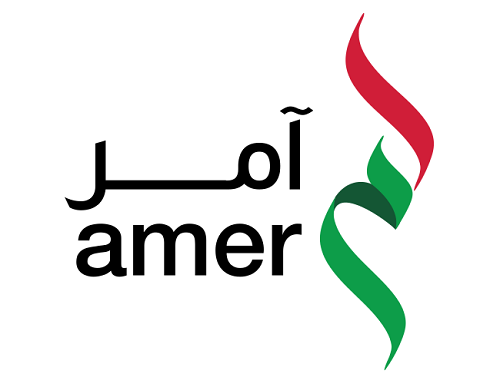When facing a personal legal issue such as divorce, custody, or other family matters, choosing the right lawyer is one of the most critical decisions you can make. Family law cases are often emotionally charged, legally complex, and require the guidance of a professional who not only knows the legal system but also understands the personal sensitivities involved.
In a culturally diverse and legally unique city like Dubai, this decision becomes even more important. With the intersection of Sharia law, UAE federal law, and allowances for expatriates under certain circumstances, finding the right family lawyer is essential to protect your rights and interests. This article offers a comprehensive guide to help you make the right choice for your situation.
Understand the Nature of Your Family Law Case
Before searching for a lawyer, you should be clear about the nature and complexity of your legal issue. Are you seeking a divorce, child custody, alimony, or inheritance settlement? Is your matter uncontested or contentious? Does it involve international elements, such as a spouse living abroad or assets in multiple countries?
By clearly identifying your needs, you’ll be better prepared to choose a lawyer with specific expertise. For example, if you are going through a divorce, it’s important to look for professionals who are experienced divorce lawyers in Dubai and understand both the legal framework and the cultural nuances.
Ensure the Lawyer Is Licensed and Qualified in the UAE
Family law in Dubai is governed by a combination of UAE Federal Law, Sharia principles (primarily for Muslims), and international law (where applicable to expatriates). As such, your lawyer must be qualified to practice in the UAE and experienced in handling family law matters.
Ask the following:
- Is the lawyer licensed by the Dubai Legal Affairs Department or relevant authority?
- Are they registered to appear before the Dubai courts?
- Do they have experience in family law specifically, or are they general practitioners?
You need someone who specializes in family law and has extensive experience working within the Dubai legal system.
Look for Experience With Cases Similar to Yours
Family law is a broad field. One lawyer might be excellent at handling divorce settlements, while another may specialize in child custody disputes or guardianship matters. Experience with similar cases increases the likelihood of a favorable outcome.
Here are some questions to ask during your consultation:
- Have you handled cases similar to mine?
- What strategies did you use, and what were the outcomes?
- Are you familiar with cross-border family law issues?
If you are seeking to end a marriage, it’s advisable to choose divorce lawyers in Dubai who understand both UAE family laws and any possible international dimensions of your case.
Check the Lawyer’s Reputation and Track Record
One of the most effective ways to evaluate a family lawyer is to check their reputation. While you might not have access to a public database of lawyer ratings, there are still many ways to assess credibility:
- Ask for references or testimonials from former clients.
- Inquire about case outcomes, especially those with similar circumstances.
- Assess whether the lawyer is known for professional integrity, ethical conduct, and responsiveness.
You don’t necessarily need a lawyer with a celebrity profile. What you want is someone who is respected by peers, trusted by clients, and has a proven track record of delivering results.
Prioritize Communication and Compatibility
Legal skill is essential, but so is the ability to communicate effectively. Family law cases often involve discussing sensitive, personal matters. You should feel comfortable talking openly with your lawyer and trust that they understand and care about your situation.
Look for these qualities:
- Clear and transparent communication.
- The ability to explain legal processes in simple language.
- A respectful and empathetic approach.
- Willingness to listen without judgment.
The right family lawyer should not only be a legal advisor but also a steady hand during emotional periods. Compatibility and trust are key.
Understand the Lawyer’s Approach to Strategy
Family law cases can be approached in many different ways—some may be resolved through mediation or negotiation, while others might require court intervention. During the consultation, ask how the lawyer would approach your case:
- Are they open to mediation or alternative dispute resolution?
- Do they have courtroom experience if litigation becomes necessary?
- What timeline and outcome should you realistically expect?
You should feel confident that your lawyer has a plan that matches your needs. A good family lawyer will outline a strategy that balances firmness with flexibility and aims to protect your long-term interests.
Discuss Fees and Payment Structure Upfront
Legal fees can vary widely depending on the complexity of the case, the experience of the lawyer, and the number of hours required. Be upfront about your budget and ask for clarity on the payment structure.
Key points to discuss include:
- Whether fees are charged hourly or as a fixed package.
- If a retainer is required, and how much it is.
- What services are included in the fee, and what will cost extra.
- How billing is handled—monthly statements, per milestone, or at the conclusion of the case?
Transparency is vital. A trustworthy lawyer will explain their pricing clearly and help you avoid any unexpected costs.
Evaluate Availability and Commitment
A lawyer may be highly experienced but too busy to give your case the attention it deserves. During the early stages of your interaction, assess how available and engaged the lawyer is.
Ask:
- Will you be working directly with the lawyer or with a junior associate?
- How often can you expect updates?
- Will the lawyer be accessible for urgent questions?
You want someone who has the time and capacity to prioritize your case, not someone who is constantly distracted or difficult to reach.
Consider Cultural and Language Compatibility
Dubai is a multicultural city, and its legal system serves people from many different nationalities and backgrounds. Especially in family matters, cultural sensitivity and language compatibility can play a crucial role in your comfort level and the clarity of communication.
If English or Arabic is not your first language, look for a lawyer who speaks your language or has translators available. Similarly, choose someone who understands the cultural context of your family dynamics and values.
Identify Red Flags Before Committing
As with any professional relationship, there are warning signs that suggest a lawyer may not be the right fit for your case. These may include:
- Vague or evasive answers to your questions.
- Guarantees of a certain outcome (no ethical lawyer does this).
- Unclear billing practices.
- A lack of interest in understanding your unique circumstances.
- A dismissive or arrogant attitude.
If you sense any of these red flags during the initial consultation, it’s best to keep looking. The goal is to find a lawyer you can trust and work with closely throughout what may be a challenging period.
Formalize the Engagement With a Written Agreement
Once you’ve chosen the right lawyer, make sure the terms of your engagement are formalized in writing. The agreement should outline:
- The scope of services to be provided.
- The legal fees and payment schedule.
- The responsibilities of both parties.
- Communication methods and case timelines.
Having this agreement in place protects both you and the lawyer and ensures that everyone is on the same page.
Stay Engaged in Your Case
Even after you hire a lawyer, remain actively involved in your case. Family matters are personal, and no one understands your situation better than you do. Regularly check in with your lawyer, ask for updates, and provide any documentation or information requested in a timely manner.
Your involvement can also help keep costs under control and improve the overall outcome of your case.
Conclusion
Choosing the right family lawyer in Dubai is about more than finding someone with a legal degree. It’s about selecting a professional who understands your unique needs, communicates clearly, and has the experience to navigate complex legal systems. Whether you’re dealing with custody, alimony, or considering a separation, the right lawyer can make all the difference.
If your issue relates to marital disputes, take your time finding divorce lawyers in Dubai who are experienced, ethical, and committed to your case. This choice will have lasting implications on your family, your finances, and your peace of mind.
Invest the effort now to choose wisely—and you’ll thank yourself later.













